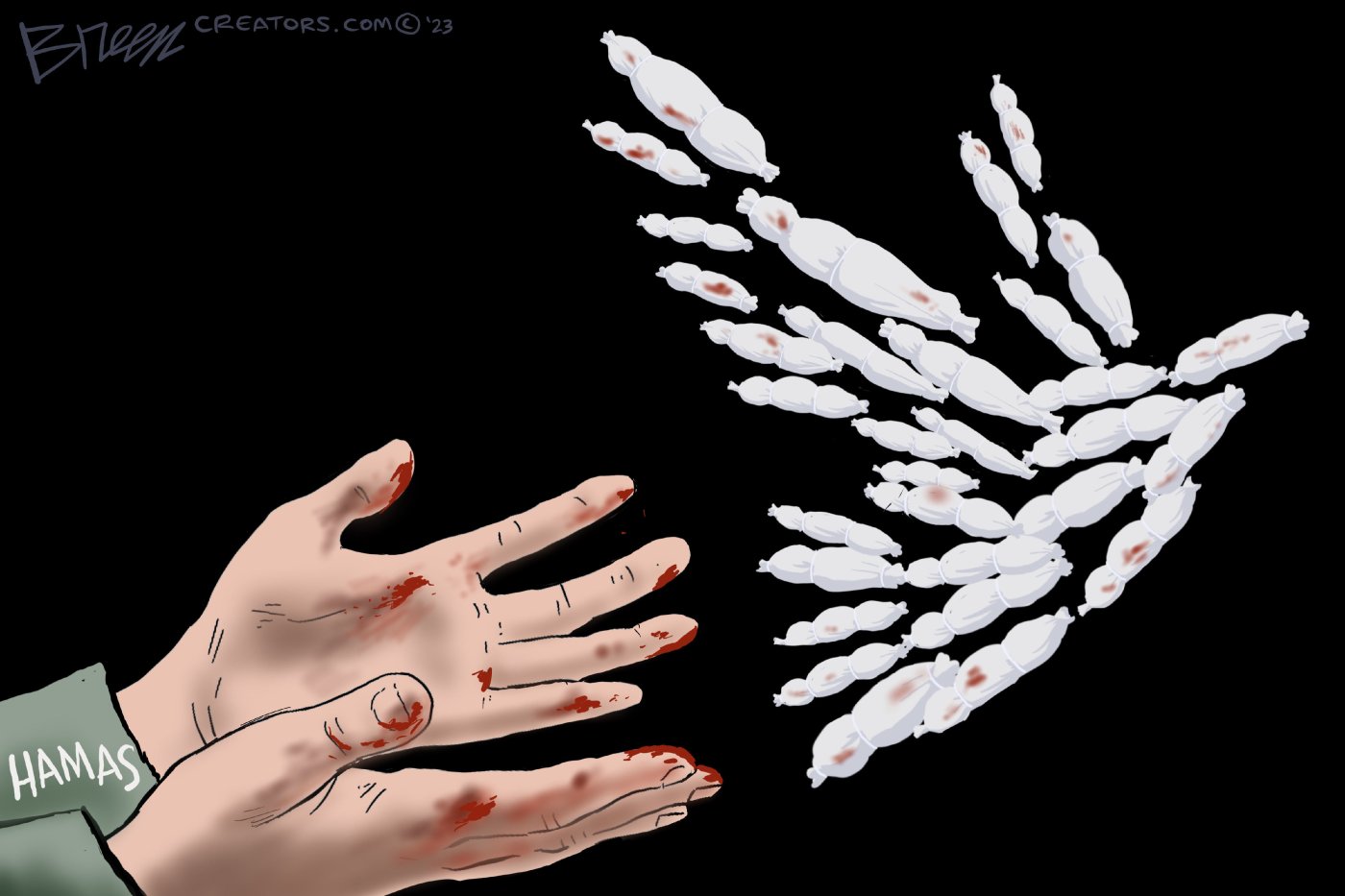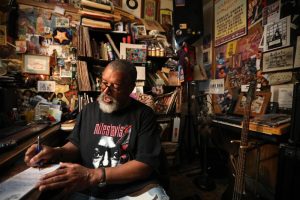
Gaskin: Hope amid mourning for peace in Israel
When I saw the world’s reaction to the massacre in Israel on Oct. 7, I was dumbfounded by the silence of some, the cheering of others, and the excuses and rationalization of many for the crimes Hamas committed against humanity. I couldn’t believe righteous people had lost the ability to condemn sin and evil.
A Ukrainian Jew remarked: “When Russia attacked Ukraine, people flew Ukrainian flags. When Hamas attacked Israel, people flew Palestinian flags.”
I, like many Jews and Israelis, have no difficulty supporting Palestinian human rights and self-determination while also condemning the actions of Hamas. I’ve been puzzled as to why so many non-Jews can’t.
Antisemitism has been on the rise for years, but since Oct. 7, it has spiked alarmingly. As a result, Jews report being more self-conscious about being Jewish than ever before. Many have kept their children home from public school, avoided going to their synagogues, and tried to become less visibly Jewish, e.g., taking off a Star of David necklace or removing mezuzahs. In support of Israel, some wanted to fly the Israeli flag but feared communicating that Jews lived there.
As I considered the world’s reaction to Oct. 7, I concluded Israel has no natural friends or allies. Those on the far right, such as white nationalists, don’t like Jews or Israel, but neither do those on the far left who support anti-Zionism or dislike U.S. foreign policy in the Middle East as implemented through Israel. Poor whites who fly Confederate flags don’t like Jews, but neither do many rich gentiles, like Henry Ford. I still don’t understand why there wasn’t a boycott of Ford. For the last century, Blacks have allied with Jews on many issues, but not when it comes to the Palestinians. Remember, “From Ferguson to Palestine.” Neither Democrats nor Republicans are reliable allies.
It’s different for Blacks. We can usually count on support from Blacks from the African Diaspora, Hispanics, Democrats, liberal whites, various progressives, and college students. When one man, George Floyd died, there were Black Lives Matter protests around the world. When 270 died Oct. 7 at the Re’im music festival in Israel, there was silence in the world’s capitals except for those protesting in support of the Palestinians. A few days later, people mistakenly thought Israel had bombed a hospital in Gaza, killing many Palestinian civilians. Again there were protests around the world. The only conclusion one could reach is that, unlike Black lives, Jewish lives don’t matter.
Blacks have often said non-Blacks can’t know what it’s like to be Black. On Oct. 7, I had an idea of what it was like to be a Jew: living in fear of unprovoked attacks, being self-conscious about being Jewish, and being unable to look to traditional institutions or allies for support.
I regret that it took me a lifetime to realize this, and I apologize to the Jewish community. Yes, I had seen documentaries on the Holocaust and was familiar with Facing History & Ourselves, but my mental model was that people with white skin (like Ashkenazi Jews) who lived in the suburbs were immune from discrimination and hatred. I didn’t know there was so much antisemitism in affluent suburbs, and when I learned about it, I didn’t understand it.
On Oct. 7, people said horrible things such as “about time” and “Israel is getting a taste of its own medicine.” Worse yet, these weren’t comments from white nationalists or the ignorant. These types of statements came from leaders at Ivy League colleges. It is a low bar to say a recognized terrorist organization committed terror and you condemn terrorism. It’s not the victims or perpetrators who make the Holocaust possible, it’s the bystander majority. The silence of the bystanders to the horror of Oct. 7 rightly scares those who remember the Holocaust.
My liberal friends are making a mistake by giving Hamas a pass because they believe it advances Palestinian aspirations. Hamas doesn’t just hate Jews. Hamas is a terrorist organization that hates the West; is antidemocratic, anti-women, and anti-LGBTQ rights; and opposes religious freedoms — in theory, the values that liberals embrace. Not condemning Hamas’ actions only encourages its agenda and emboldens similar terrorist groups.
When I gathered with a small group in the home of a Jewish friend to discuss how to support Israel during this difficult time, I felt as though I was sitting shiva.
I was grieving the loss of Jewish and Palestinian lives as well as the death of the dream of peace held for so long by so many Jews, Muslims and Christians. I was grieving future deaths, knowing another generation wouldn’t experience peace.
The fighting in Gaza perpetuates the lie that Jews and Arabs cannot live together in peace. Outside the West Bank and Gaza, about 18% of Israel’s population is Muslim, and beautiful cities such as Haifa are home to Jews and Arabs alike. There are Jewish/Arab and Jewish/Muslim families, and many Jewish-Palestinian organizations working to achieve peace. Jews trust armed Palestinians to guard their neighborhoods and homes. Peace is possible.
Israel’s strategy to destroy Hamas is making the world less sympathetic to Israel, even though Hamas uses Palestinians as human shields. This further fuels antisemitism.
As Sen. Chris Murphy has noted, for every terrorist killed, two more join the ranks. I fear that out of the ashes of Gaza will emerge Hamas 2.0, larger and more committed to the destruction of Israel than ever.
I am reminded of how the United States left Afghanistan — after spending billions of dollars and losing thousands of lives — only to see the Taliban return to power. Like Hamas, the Taliban espouses an ideology that no army can destroy.
Throughout Israel’s history, from Egyptian captivity to the exile and through the destruction of the first and second temples, the prophets always had hope because they were able to see a future resurrection of life after death and destruction. As I experience my shiva moment for peace in Israel, I must have hope for a peaceful Israel and a life after death and destruction.
Ed Gaskin is Executive Director of Greater Grove Hall Main Streets and founder of Sunday Celebrations.


